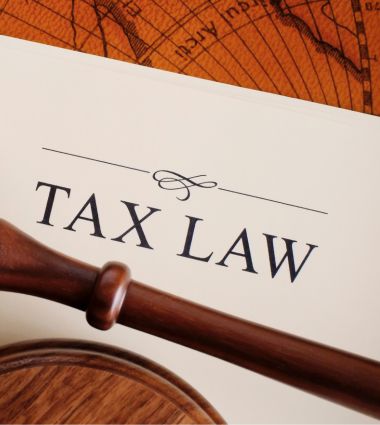5 Questions To Ask Your Estate Lawyer - Khan Law
If you are planning your estate and preparing a legacy, choosing the right lawyer is crucial. An experienced estate lawyer can help your wishes be properly documented and executed. Before retaining counsel, come prepared with questions to determine if they are the right fit.
This article will provide five questions to ask your real estate lawyer during an initial consultation. Thoughtful preparation empowers you to make an informed decision when choosing the lawyer for your estate plans. With the right counsel secured you can proceed confidently to construct an estate plan that protects your assets and provides for your loved ones.
Who is a Real Estate Lawyer?
A real estate lawyer is a legal professional who specializes in property law. They prepare and review legal documents relating to the sale, purchase, and transfer of real property. Real estate lawyers provide advice on property transactions such as sales, mortgages, leases, title searches, and property taxes. They ensure that property sales and purchases meet legal requirements. Real estate lawyers also handle more complex transactions involving commercial properties or large land deals.
When to Hire a Real Estate Lawyer?
A real estate lawyer should be consulted for any legal matters about property. Their expertise can help ensure all agreements and contracts are fair and binding. It is wise to hire a real estate lawyer when:

- Purchasing or selling a home. They can review offers, and counteroffers and finalize sales contracts.
- Refinancing a mortgage. They will evaluate the lender’s terms and protect your best interests.
- Drafting or revising a lease. They can determine if a lease is lawful, and balanced and protects the rights of both landlord and tenant.
- Settling an estate. They will navigate the legal complexities of transferring property ownership after someone has passed away.
- Handling property disputes. Whether between neighbours over boundaries or between family members, a lawyer can determine the merits of each party’s claim and seek an equitable resolution.
Consulting with a real estate lawyer for any matter involving property transfer or legal issues is highly advisable. Their expertise and objectivity can help avoid costly mistakes and ensure your rights are protected.
Here are the questions to ask your real estate lawyer during the initial meeting:
Do You Have Experience Handling Estates Like Mine?
It is necessary to inquire about the lawyer's experience in estate planning and management. Ask if they have dealt with estates similar in size and complexity to yours. An experienced estate lawyer will be better equipped to create an effective estate plan customized to your unique situation. They can also help minimize the potential for legal disputes by ensuring all documentation is comprehensive and legally sound.
Estate law is constantly evolving. Changes in tax laws, trusts, and probate procedures may have an impact on your estate plan, so make sure your lawyer is aware of them. Regular continuing education and participation in estate law associations are good signs they take an active interest in the latest developments.
Your Approach to Estate Planning
Get a sense of the lawyer's philosophy and process. Some focus narrowly on minimizing taxes while others take a more comprehensive approach, considering your values, goals, and family dynamics. The estate planning approach should align with what you want to accomplish. Discuss how they evaluate your needs and suggest appropriate strategies.
How Do You Charge for Your Services?

Fees for Consultations
To provide initial counsel on your estate planning needs, most estate lawyers in Canada charge by the hour for consultations. Rates typically range from $150 to $500 per hour depending on the complexity of your situation and the lawyer’s experience. The initial meeting usually lasts 30 to 90 minutes.
Fixed or Flat Fees
For the preparation of standard documents like wills, powers of attorney, and health care directives, many lawyers charge a fixed flat fee. Fees depend on the specifics of your documents but often fall between $500 to $2,000 in total. The lawyer will review and revise the documents as needed within that fixed price.
Hourly Billing
Estate litigation or the administration of a complex estate often necessitates hourly billing. The lawyer tracks the time spent on phone calls, meetings, correspondence, document review, and preparation. Hourly rates apply for estate lawyers, paralegals, and legal assistants. Obtain an estimate of the total hours and fees before proceeding for budgeting purposes.
Contingency Fees
In rare situations, a lawyer may accept a contingency fee for challenging a will or trust on your behalf. The lawyer receives an agreed-upon percentage of any settlement or judgment awarded to you. Contingency fees allow those who could not otherwise afford representation the ability to pursue litigation. Discuss the details of any contingency arrangement thoroughly before retaining a lawyer.
What Is Your Approach to Minimizing Taxes and Fees?
When planning your estate, it is crucial to consider strategies that will reduce the amount of taxes owed upon your passing. An experienced estate lawyer will know provisions in the tax code and legal mechanisms that can minimize the estate’s tax burden legally.
Inquire about tools such as spousal trusts, charitable donations, gifting assets, and using tax-advantaged accounts. Their expertise in these areas can help ensure your estate’s maximum value is passed to your beneficiaries. You should also ask if they systematically identify all opportunities to minimize taxes, rather than in an informal manner. An organized methodology is more likely to uncover all potential savings.
Can You Provide References?
When interviewing estate lawyers, be sure to ask if they can provide references from previous clients. Speaking with references is an excellent way to gauge the lawyer’s responsiveness, communication, and quality of service. Ask the lawyer for the contact details of two to three former clients who worked with them on a matter similar to yours. Contact these individuals, describe your situation, and inquire about their experience with the lawyer. Questions to ask include:

Was the lawyer attentive and responsive to your needs? Did they clearly explain all documents, processes and options in an easy-to-understand manner? Were you satisfied with the outcome and overall service? Would you hire them again for future legal work?
Speaking with references provides valuable insight to help determine if the lawyer is the right fit for your needs. Do not hesitate to ask follow-up questions to gain a well-rounded view of what it is like to work with a lawyer. Checking references is a mindful step when making this important hiring decision.
What Are Your Qualifications?
When choosing an estate lawyer, inquire about their credentials and experience. Ideally, seek out lawyers who specialize in estate law and wills and trusts. Ask how long they have practised this area of law and their level of expertise with complex estate plans.
Check if they are accredited by the Law Society in your province. Lawyers must meet educational and experience requirements to become accredited specialists. Confirm if they stay up-to-date with changes in estate legislation through continuing education. An experienced estate lawyer will have helped numerous clients through the estate planning process and worked with various family dynamics.
Their qualifications and competence will significantly impact how well they can serve your needs. Don't hesitate to ask probing questions about their background, skills, and credentials. For something as important as your estate plan, you want a lawyer with the proper qualifications and experience.
Conclusion
As you consider your options for estate planning and working with an estate lawyer, these five key questions to ask your real estate lawyer can help guide your discussions. By asking about the lawyer's experience, fees, specialities, communication style, and planning philosophy, you gain crucial insight into whether they are the right fit.
An estate lawyer plays a central role, so taking the time to find one you trust and can work with effectively is time well spent. With the lawyer's guidance, you can create a thoughtful plan that provides for your loved ones, handles your assets according to your wishes, and gives you peace of mind knowing things are properly in place.
Real Estate
Family Law
Wills & Estates
Immigration
Join Our Mailing List.
Sign up with your email to receive our newsletter and stay informed about the latest legal developments and special offers.








